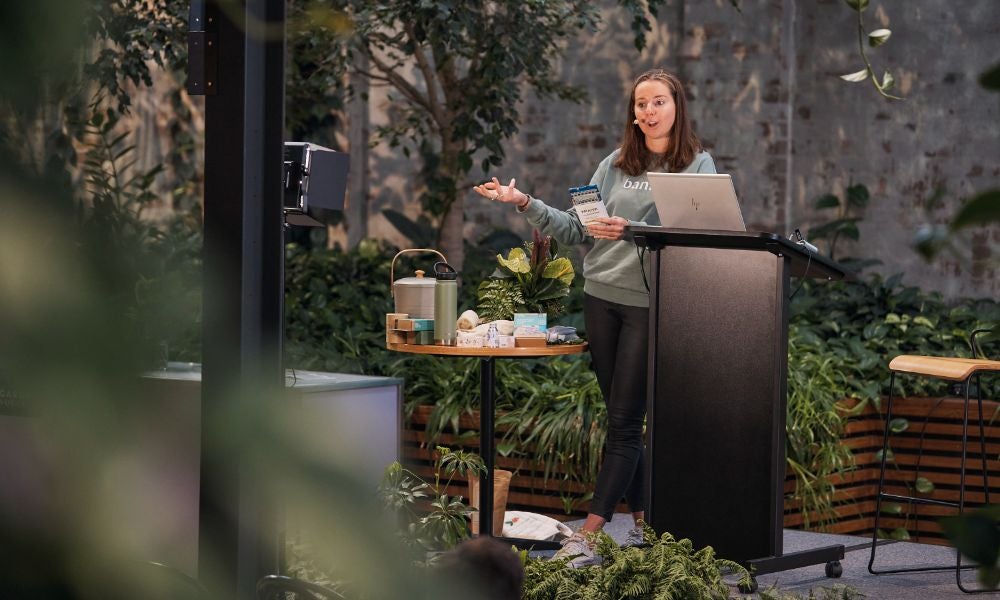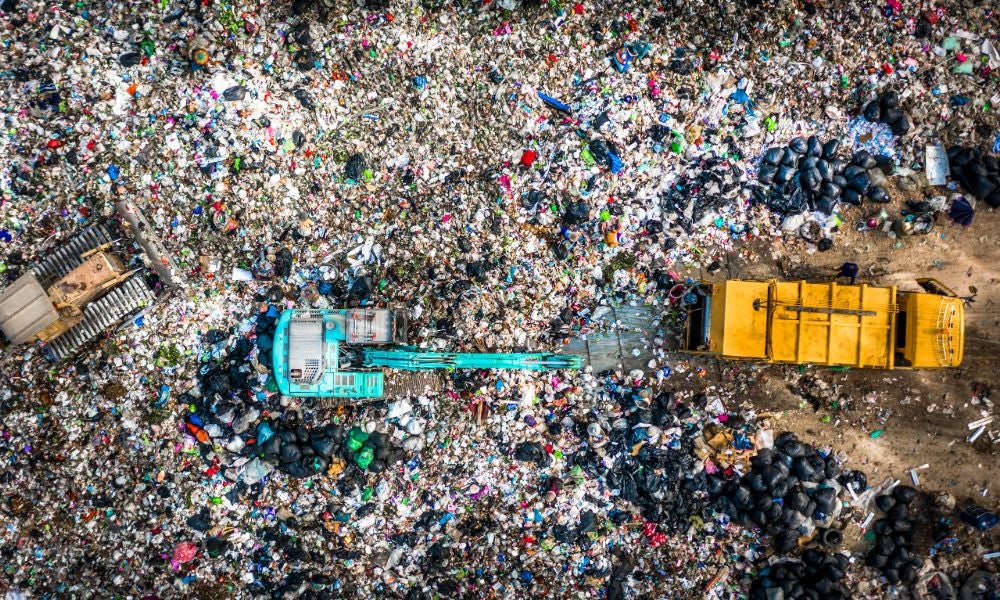Behind Lottie Dalziel’s mission to transform sustainable consumerism
Download The Business Of podcast today on your favourite podcast platform.
A search for a plastic-free alternative was the catalyst for a business that connects consumers with sustainable products and promotes responsible consumption
In January 2018, as environmental headlines warned of oceans filled with more plastic than fish by 2050 and accelerating species extinction, journalist Lottie Dalziel felt overwhelmed by environmental doom. Unlike many who abandon their New Year's resolutions within weeks, Ms Dalziel transformed her pledge to "do better for the planet" into a business venture that would address both consumer confusion and market gaps in sustainability.
Her search for a simple reusable straw revealed the challenges eco-conscious consumers face: overwhelming options, insufficient information, and misleading marketing claims that left her feeling deceived and frustrated. "I'd read [environmental headlines] and I'd feel really disheartened, and there was no one out there saying 'here's what you can do about it'," said Ms Dalziel, who was recently interviewed by Dr Juliet Bourke, Adjunct Professor in the School of Management and Governance at UNSW Business School for The Business Of, a podcast from UNSW Business School.
This information void – between alarming environmental news and practical consumer action – presented the ideal foundation for a business that would combine education with carefully vetted products.
Finding a gap in the market
Ms Dalziel's business idea originated from personal experience. While researching sustainable alternatives to plastic straws, she ordered what she believed were environmentally responsible products. The items arrived individually wrapped in plastic, contradicting their eco-friendly claims.

"It made me feel really disheartened," recalled Ms Dalziel, "like there was no point in even trying. But I didn't really let myself sit in that despair for too long, because I went, 'Well hang on, I can actually see an opportunity here, an opportunity to teach people, because the everyday person is not going to do the amount of research that I did.'"
She identified a critical gap: small sustainable businesses created quality products but lacked marketing expertise to reach wider audiences. This observation prompted Ms Dalziel to establish a platform that would both educate consumers on sustainable living and connect them with authentic eco-friendly brands that met strict environmental standards.
Low-risk business launch strategy
Ms Dalziel launched her platform, called Banish, in just two weeks through a remarkably efficient approach. By using modern website-building tools and implementing a dropshipping model, she minimised financial risk while testing market response.
"Everything's been self-funded. We originally started as a drop shipping platform. That means that we didn't hold any stock," she explained. “It was a really low-risk model for us, because it meant that we didn't need to order large quantities of anything."
Read more: How social influences and pride drive consumer recycling
This approach exemplifies what UNSW Business School Professor Barney Tan, who also spoke in the podcast, calls "frugal innovation" – achieving more with less by innovating at the periphery of business operations. For startups with limited capital, such methods provide a low-risk pathway to experiment and learn without substantial upfront investment.
Building trust through transparency
To establish credibility in an emerging market segment, Ms Dalziel prioritised transparency in communication with potential customers. She documented her personal sustainability journey and shared the standards Banish required for products to be featured on the platform.
The company developed the "Banish Sin Bin" – strict criteria that excluded items containing palm oils, parabens, synthetic fragrances, and plastic packaging. These standards proved influential over time, with Ms Dalziel noting that "brands, as they were building, would be building to match our criteria, so that then they knew that they would be listed on the platform."
Another trust-building strategy involved exclusivity agreements with suppliers. Except for skincare products, Banish featured only one brand per product category. This approach reduced decision fatigue for consumers while creating synergy among complementary sustainable products rather than direct competition.
Organic growth through recycling initiatives
The most significant transformation in Banish's business model came through an unplanned expansion into recycling. When Ms Dalziel continued finding items she couldn't recycle through normal channels despite her sustainable lifestyle, she researched alternatives and discovered that many materials could be recycled – but only in bulk quantities.

This insight led to the creation of BRAD (Banish Recycling and Diversion program), which collects hard-to-recycle household items from consumers nationwide. What began with three shoeboxes of materials in the first month grew exponentially, necessitating volunteer help and eventually dedicated facilities.
"In the last 12 months, we had over 17,700 households send us their hard-to-recycle items in the mail," Ms Dalziel said. "We've recycled just over 3.2 million blister packs, and we've been able to divert over 18 tons from landfill in the last 12 months alone."
This growth fundamentally changed the company's trajectory, with recycling operations requiring increased space and community involvement. Through an opportunity with a property developer, Banish secured a central location that allowed it to triple its operational space and add a retail component to the business.
The pivot: Aligning the business model with values
By late 2023, Ms Dalziel faced a significant challenge: the business that emerged from a commitment to sustainability relied on consumer purchases. This contradiction prompted a major strategic pivot.
"We want people to be consuming less. So, to have an organisation or a social enterprise that relied on people buying stuff didn't sit right with me anymore," she explained. Banish closed its retail operation and shifted focus to products made from recycled materials while expanding educational initiatives.
Subscribe to BusinessThink for the latest research, analysis and insights from UNSW Business School
This pivot represented a substantial risk to revenue streams. Before making the change, Ms Dalziel tested alternative income sources through events and corporate partnerships. "We started getting some really great bookings from people, which allowed us to go, okay, great, there is a tangible business model there," she said. These partnerships provided a safety net for the transition to what Ms Dalziel calls "Banish 2.0."
Lessons in adaptability and customer focus
Ms Dalziel's experience demonstrates the importance of adaptability in entrepreneurship. Her willingness to adjust business direction based on customer feedback and emerging opportunities enabled Banish to evolve from marketplace to sustainability hub to education platform.
"One of the biggest things that I've learned through this journey is that you can have a plan. You can have so many things written down and a nice, neat to-do list, but so many times, things don't work out how you originally plan them to," reflected Ms Dalziel.
This adaptability extends to product selection and business focus. By listening closely to customer needs and responses, Banish maintained relevance in a rapidly changing market. Ms Dalziel emphasises the value of community feedback in guiding business decisions: "We should be relying on feedback from our community, because they are the centre of what we're doing, and they should be the ones that we're really looking to service," she concluded.
